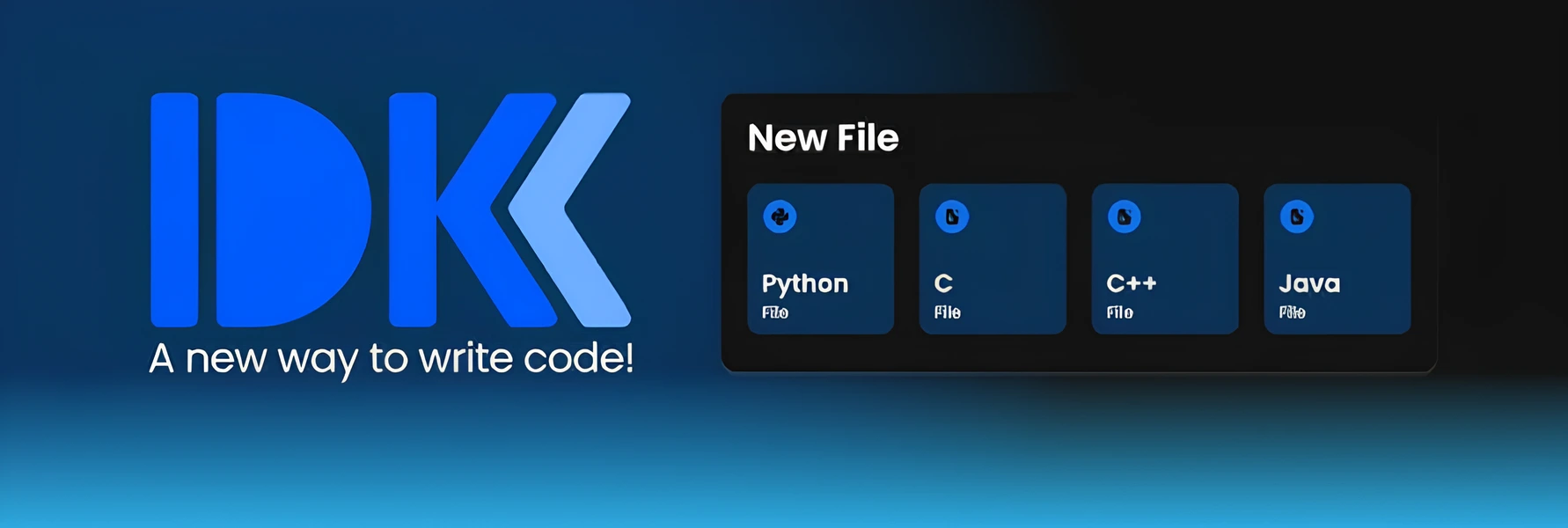
Quantum Computing and Its Impact on Software Development
Introduction
Quantum Computing is slowly moving out from the research labs into the real world. It is helping to solve complex problems in areas like finance, logistics, healthcare, and cybersecurity. While traditional computers handle many tasks well, quantum computers bring in new possibilities for challenges that require deeper, faster processing.
At Brevity Technology Solutions, we believe that staying ahead means understanding and using the right tools at the right time. Quantum Computing is one of those tools that’s beginning to move from research labs into real-world business use.
In this article, we’ll cover the basics of quantum computing, its impact on software development, and how companies can prepare for adoption.
What is Quantum Computing?
Quantum Computing is a new approach for solving problems using the principles of quantum physics. Instead of using regular bits that store information as 0 or 1, it uses qubits (quantum bits), which can hold more complex information.
Qubits behave differently from normal bits because of two main properties:
 Superposition
Superposition
In a regular computer, a bit is either 0 or 1. A qubit can be 0, 1, or both at the same time. This is called superposition. It allows quantum computers to explore many possibilities at once, which helps solve problems faster.
 Entanglement
Entanglement
Qubits can also become linked through a property called entanglement. When two qubits are entangled, changing one affects the other, no matter how far apart they are. This connection helps quantum computers to solve certain problems in new and powerful ways.
These properties make quantum computers well-suited for solving certain types of problems that are too complex or time-consuming for traditional computers. They can be used to help discover new drugs, improve traffic and delivery routes, understand complex systems, and more.
According to Grand View Research, the global cloud-based quantum computing market size was estimated at USD 721.4 million in 2024, and is expected to reach USD 2,210.5 million by 2030, growing at a compound annual growth rate (CAGR) of 20.5% from 2024 to 2030.
Key Differences Between Classical and Quantum Computing
Quantum computing is not just a faster version of traditional computing. It’s a completely different model that uses the laws of quantum physics to solve problems in new ways.
Here’s a detailed comparison to help you understand the key differences:
| Feature | Classical Computing | Quantum Computing |
|---|---|---|
| Basic Unit | Bit (0 or 1) | Qubit (0, 1, or both) |
| Processing | Solves tasks step by step | Can process many possibilities at once |
| Speed | Slower for complex problems | Exponentially faster |
| Use Cases | Apps, websites, automation | Cryptography, AI, optimization |
| Security | Vulnerable to future attacks | Can enable ultra-secure encryption using quantum-safe algorithms |
Basic Unit: Bit vs Qubit
Classical computers use bits, which can have a value of either 0 or 1. These bits are the basic units of information and are used in everything from sending emails to running applications.
Quantum computers use qubits, which work differently. A qubit can be in the state of 0, 1, or both at once. This property, called superposition, allows quantum systems to store and process more information at the same time compared to classical computers.
Processing: Step-by-Step vs Parallel Possibilities
A traditional computer processes one step at a time, even if it’s working quickly. Most tasks are still handled one instruction after another.
Quantum computers can explore many possible solutions at the same time. This parallelism makes them well suited for problems that would take classical systems a very long time to solve.
Speed: Linear Improvement vs Exponential Power
When you upgrade a regular computer, you’re usually getting a little more power or speed. These improvements happen one step at a time.
Quantum computers can solve some problems exponentially faster. For example, a problem that would take thousands of years on a classical supercomputer can be done in minutes using a quantum machine.
Use Cases: Everyday Tasks vs Complex Problems
Classical computers are great for everyday use like browsing the internet, managing spreadsheets, or building software applications.
Quantum computers are designed for highly complex problems, such as:
- Securing digital data
- Training AI models faster
- Optimizing supply chain routes or logistics systems
Security: Traditional vs Quantum-Safe Encryption
Today’s encryption methods rely on math problems that are too hard for classical computers to break. But quantum computers can crack many of these systems quickly, which puts data at risk.
That’s why researchers are developing quantum-safe encryption. These new algorithms will protect against the threats that quantum machines may pose in the future.
In summary, quantum computers are not designed to replace traditional computers, but to work alongside them for very specific, high-complexity tasks.
Impact of Quantum Computing on Software Development
Quantum Computing Across Industries
Healthcare

Quantum computers can simulate how molecules and proteins behave at the atomic level. This opens up faster and more accurate ways to discover new medicines and understand diseases.
How it helps:
- Drug discovery: Testing thousands of drug compounds quickly without physical experiments.
- Protein folding: Simulating how proteins interact to better understand conditions like cancer, Alzheimer’s, or Parkinson’s.
- Personalized medicine: Supporting faster data processing for DNA analysis and treatment planning.
Finance
The finance industry deals with massive amounts of data, fast decision-making, and constant risk. Quantum computing offers faster analysis and improved accuracy for complex financial problems.
Use cases include:
- Fraud detection: Analyzing large sets of transactions instantly to spot unusual behavior.
- Risk analysis: Modeling thousands of market scenarios to understand investment risks.
- Portfolio optimization: Balancing assets across multiple factors with better precision.

Manufacturing

Manufacturers need to design better materials, reduce waste, and improve how things are made. Quantum computing can support smarter simulations and planning.
Key benefits:
- Material science: Testing how new metals, plastics, or chemicals behave before creating them in real life.
- Process improvement: Running simulations of assembly lines and factory workflows to reduce time and costs.
- Predictive maintenance: Using AI with quantum tools to predict when machines might fail, avoiding downtime.
Logistics and Supply Chain
Logistics and Supply Chain industry deals with complex systems, like routing deliveries across cities or tracking parts through global networks. Quantum tools can help find better, faster ways to manage those systems.
Real-world use cases:
- Route planning: Choosing the fastest and most fuel-efficient paths for trucks or delivery vans.
- Inventory management: Improving how and where items are stored and moved.
- Demand forecasting: Processing large data sets to better predict what products are needed, and when are they needed.

Cybersecurity

Quantum computing could both break and build modern encryption systems. While today’s encryption is strong, quantum machines could unlock encrypted data if companies don’t update their defenses.
How it applies:
- Post-quantum encryption: Developing new encryption systems that can’t be cracked by quantum computers.
- Secure communications: Using Quantum Key Distribution (QKD) to send data that can’t be intercepted or altered.
- Security software: Writing code that defends against future threats.
Challenges and Potential Solutions in Quantum Computing
Like any emerging technology, quantum computing comes with it’s own set of challenges. The good news is that many of these challenges are already being addressed through innovation, collaboration, and new tools.
 High Hardware Cost:
High Hardware Cost:
Quantum systems are expensive to build because they require specialized components and controlled environments. However, many companies are solving this by offering cloud-based access to quantum machines. This allows developers and businesses to experiment and build quantum applications without investing in physical infrastructure.
 Cold Operating Environment:
Cold Operating Environment:
Qubits only work properly in ultra-cold environments close to absolute zero, which makes quantum computers hard to maintain. To solve this, researchers are developing new types of qubits and more efficient cooling systems that can support longer runtimes and more stable performance without extreme conditions.
 Talent Gap:
Talent Gap:
Quantum development require knowledge of physics, math, and new programming tools, but there aren’t enough trained developers yet. This challenge is being addressed by universities, tech companies, and online platforms offering free courses, certifications, and hands-on tools to train the quantum programmers.
 Algorithm Limitations:
Algorithm Limitations:
Many quantum algorithms are still experimental and can only solve narrow or theoretical problems. To move things forward, researchers are building hybrid models that combine classical and quantum methods, making it easier to apply quantum computing in real business scenarios like chemistry, logistics, or finance.
 Security Risks:
Security Risks:
Quantum computers have the potential to break current encryption methods, which poses a risk to data security across industries. To counter this, global cybersecurity experts are developing and testing quantum-safe encryption standards that will protect information even when quantum systems become widely available.
Conclusion
Quantum computing is not a replacement for traditional computing, but a powerful addition for solving complex problems. This includes challenges in healthcare, finance, cybersecurity, logistics, and many other fields where traditional methods are no longer enough.
Whether you’re leading a software team, managing IT systems, or growing a business, building awareness now will help you make smarter decisions later. Staying informed and open to learning gives you a real advantage in a fast-changing tech environment.
At Brevity Technology Solutions, we help businesses modernize their systems and future-proof their technology with smart, scalable solutions. Whether you’re exploring artificial intelligence, upgrading your cloud setup, or getting ready for quantum computing, our team is here to guide and support you with reliable solutions. Need assistance?
Related Post
-
F
-
A
-
Q
No, you won’t need to replace your systems. Quantum computing will be used alongside existing software to handle very complex problems that are hard for traditional computers to solve.
Not all developers need to start learning immediately. But if you work in areas like finance, healthcare, or cybersecurity, learning the basics now can give you an early advantage.
Yes, it could weaken current encryption methods in the future. At the same time, it allows new, more secure approaches like quantum key distribution to protect sensitive data.
Some common tools include Qiskit (Python-based, by IBM), Q# (by Microsoft), Cirq (by Google), and QuTiP for simulations. These are open source and come with learning resources.
No. Cloud services have made quantum tools available to startups, students, and smaller businesses. Platforms like IBM Quantum and Amazon Braket offer free access for learning and testing.
Now is a good time to get familiar with how it works. You don’t need to fully adopt it yet, but understanding where it fits into your industry will help you stay ready.
Industries that deal with complex systems and large datasets are leading the way. This includes finance, pharma, aerospace, logistics, and cybersecurity.
Most developers and businesses use it through cloud-based services like IBM Quantum, Azure Quantum, and Amazon Braket. These platforms allow testing without owning physical machines.
No, they are different fields. Quantum computing is a new way to process data, while AI is about learning patterns. Together, they can make software faster and smarter.
Want to Scale
Your Business? Let’s Meet & Discuss!

CANADA
30 Eglinton Ave W Mississauga, Ontario L5R 3E7

INDIA
3rd floor Purusharth Plaza, Amin Marg, Rajkot, Gujarat. 360002
Get a Quote Now
Let's delve into a thorough understanding of your challenges and explore potential solutions together







